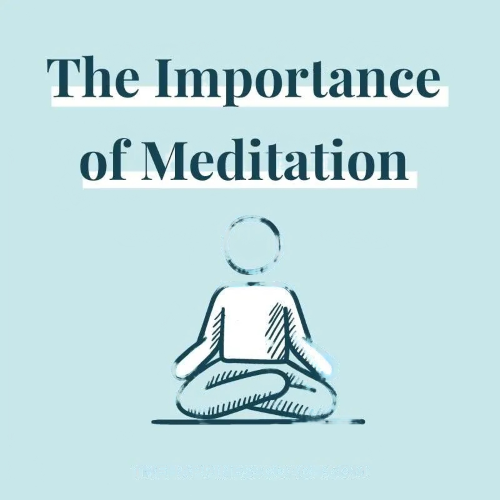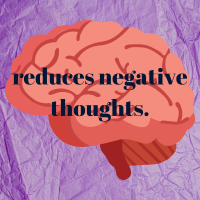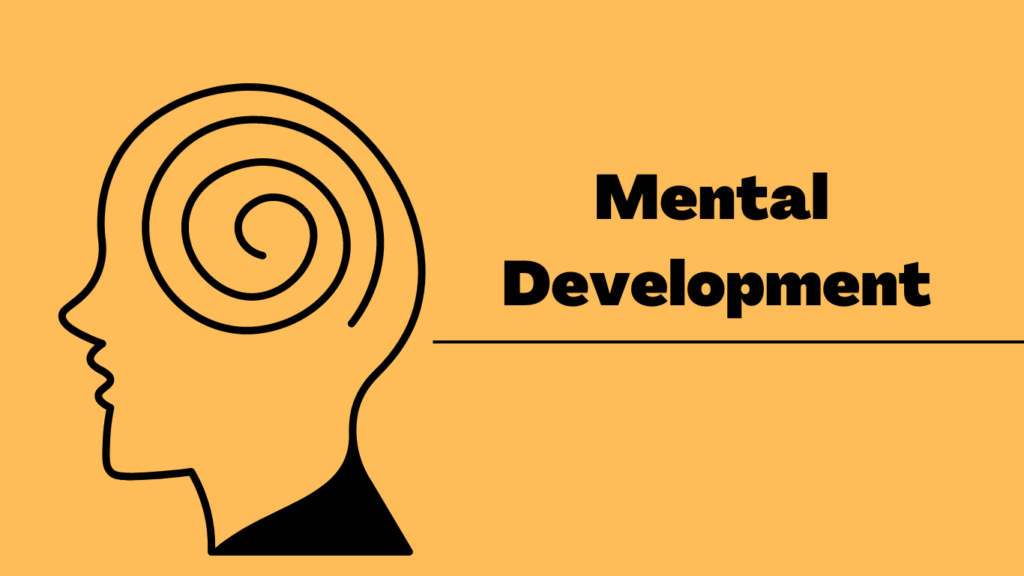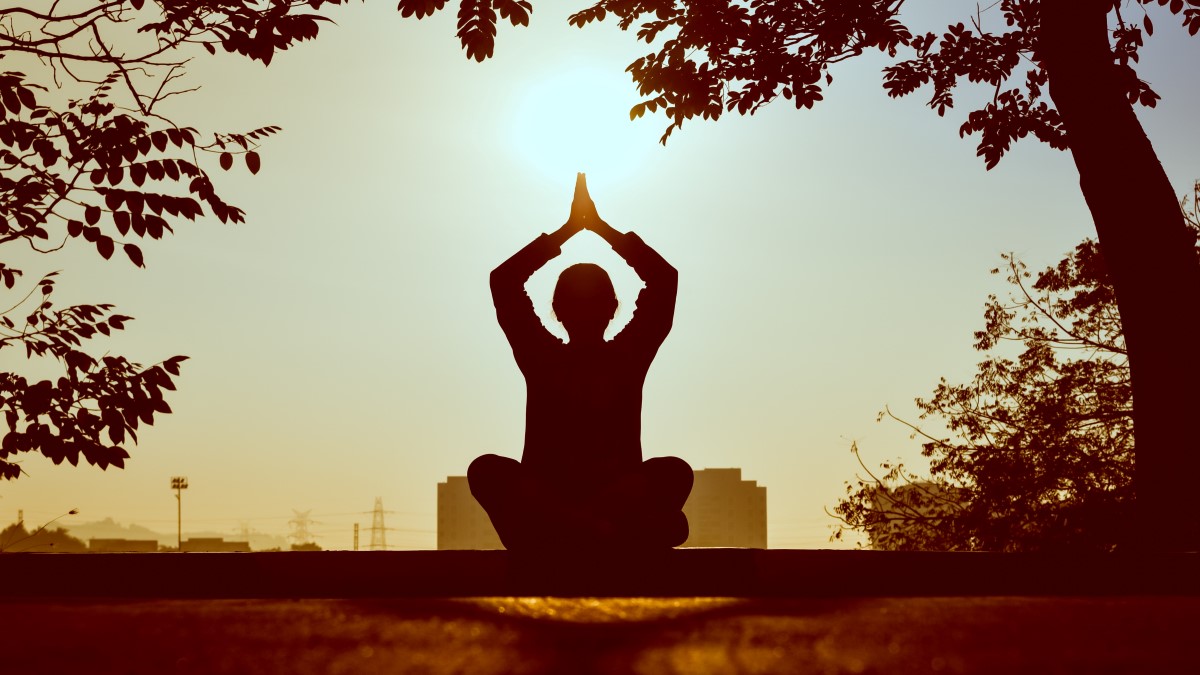Contents
What Is Meditation?
Meditation, a profound practice, serves as a sanctuary for the mind, instilling tranquility and fostering personal growth both physically and mentally. Its soothing nature envelopes the mind, unraveling its depths. Rather than transforming one into an entirely new being, meditation empowers individuals to unearth their utmost potential. The advantages of engaging in meditation are manifold and abundant.
Why Meditation Is So Important?

Meditation holds immense significance due to its profound impact on our well-being. This ancient practice serves as a sanctuary for the mind, offering respite from the chaos of daily life. By delving into the depths of our consciousness, meditation fosters self-awareness, clarity, and inner peace.
One of the key reasons why meditation is so important is its ability to reduce stress and anxiety. In today’s fast-paced world, where we are constantly bombarded with stimuli and demands, finding moments of calm and tranquility becomes essential. Meditation acts as a powerful antidote, allowing us to detach from external pressures and connect with our inner selves.
Furthermore, meditation enhances our mental and emotional resilience. It strengthens our ability to navigate challenges and setbacks, enabling us to approach life with a sense of equanimity. By cultivating mindfulness and acceptance, meditation equips us with invaluable tools to manage stress, regulate our emotions, and maintain a balanced perspective.
Moreover, meditation positively impacts our physical health. Research has shown that regular meditation practice can lower blood pressure, improve cardiovascular health, and boost immune function. It also promotes better sleep, increases energy levels, and enhances overall vitality.
In addition to its immediate benefits, meditation facilitates personal growth and self-discovery. It enables us to explore the depths of our consciousness, gain insight into our thoughts and emotions, and cultivate a deeper understanding of ourselves. This self-reflection and introspection pave the way for personal transformation and self-improvement.
Ultimately, meditation is a doorway to inner harmony, self-realization, and holistic well-being. It empowers us to cultivate a deeper connection with ourselves and the world around us, fostering a sense of purpose, fulfillment, and joy. Incorporating meditation into our lives can lead to a profound and transformative journey of self-discovery and personal growth.
Benefits Of Meditation
There are many Benefits of Meditation, among them, I am going to tell you something:
1. Reduces Your Stress

The practice of meditation offers a multitude of benefits and one of its prominent advantages is its ability to reduce stress. In our fast-paced and demanding lives, stress has become a prevalent issue that can adversely affect our physical and mental well-being. However, meditation serves as a powerful tool to counteract the detrimental effects of stress.
Engaging in regular meditation sessions allows you to construct a space of tranquility and calm your mind. As we delve into the practice, we learn to let go of the incessant thoughts and worries that contribute to our stress levels. Through focused attention and mindful awareness, meditation enables us to detach from stressors and cultivate a state of inner peace.
Scientific research has shown that meditation has a direct impact on the body’s stress response system. It activates the relaxation response, which helps to lower blood pressure, reduce heart rate, and alleviate muscular tension. By activating the body’s natural relaxation mechanisms, meditation aids in soothing the mind and body, promoting a sense of overall well-being.
2. Reducing Negative Thoughts

Among the many benefits of meditation, one notable advantage is its capacity to reduce negative thoughts. Our minds can often become a breeding ground for self-doubt, worry, and pessimism, leading to a cycle of negative thinking patterns. However, through the regular practice of meditation, we can cultivate a more positive and balanced mental state.
Meditation serves as a tool for developing mindfulness and self-awareness, allowing us to observe our thoughts without judgment. By creating a space of non-reactivity and detachment, we can gain insight into the patterns and tendencies of our thinking mind. Through this awareness, we can identify and gradually distance ourselves from negative thoughts.
Through consistent practice, meditation can help break the cycle of negative rumination and intrusive thoughts. It enables us to develop a greater sense of control over our mental landscape, allowing us to let go of detrimental thought patterns and redirect our focus towards more positive and constructive thinking.
Moreover, meditation fosters a state of inner calm and tranquility, which naturally inhibits the emergence of negative thoughts. As we learn to quiet the mind and cultivate a sense of serenity, negative thoughts lose their power and gradually dissipate. The practice of meditation creates a mental space where positivity can flourish.
Scientific studies have also shown that regular meditation practice can lead to structural changes in the brain, enhancing areas associated with emotional regulation and reducing activity in regions linked to negative thoughts and emotions. This suggests that meditation not only has a temporary impact on reducing negative thoughts but also promotes long-term changes in the brain that support a more positive mindset.
3. Mental Development

Meditation offers a multitude of benefits, and one significant advantage is its positive impact on mental development. By engaging in regular meditation practice, individuals can enhance various cognitive and psychological aspects of their well-being, leading to overall mental growth and flourishing.
One of the key benefits of meditation is its ability to improve focus and concentration. Through the practice of directing attention to a specific object, such as the breath or a mantra, meditation strengthens the mind’s ability to sustain attention and resist distractions. This enhanced focus carries over to daily life, enabling individuals to be more present and engaged in their activities.
Meditation also cultivates self-awareness and introspection, which are essential components of mental development. By observing the contents of the mind without judgment, individuals gain insights into their thoughts, emotions, and patterns of behavior. This self-reflection fosters personal growth, as it allows for the identification and transformation of unhelpful habits and limiting beliefs.
4. Increasing Patience

One of the valuable benefits of meditation is its ability to increase patience. In our fast-paced and instant-gratification-driven world, cultivating patience has become increasingly important for our overall well-being and relationships. Through regular meditation practice, individuals can develop a greater capacity for patience and tolerance.
Meditation teaches us to observe our thoughts and emotions without immediate reaction or judgment. This practice of non-reactivity extends beyond the meditation cushion and into our daily lives, helping us cultivate patience in the face of challenges, delays, and frustrations. By creating a space of calm awareness, meditation allows us to respond to situations with more composure and understanding.
The practice of mindfulness in meditation also enhances our ability to stay present in the moment. Often, impatience arises when our minds wander to the future or fixate on past events. By training our attention to remain focused on the present, meditation helps us appreciate and accept the unfolding of each moment. This mindfulness allows us to let go of the need for immediate results and embrace the process.
Moreover, meditation supports emotional regulation, which plays a crucial role in developing patience. When we are overwhelmed by negative emotions such as anger, anxiety, or frustration, our ability to be patient diminishes. By cultivating awareness of our emotions and practicing self-regulation techniques during meditation, we can develop the capacity to respond to challenging situations with patience and understanding.
Additionally, meditation fosters a deeper sense of empathy and compassion towards ourselves and others. As we connect with our inner selves and cultivate self-compassion through meditation, we become more understanding and patient with our own imperfections. This expanded compassion naturally extends to others, allowing us to be more patient and empathetic in our interactions.
5. Meditation Keeps Us Energized Every Day

Meditation offers a multitude of benefits, and one notable advantage is its ability to keep us energized every day. Through regular meditation practice, we can tap into a wellspring of vitality that rejuvenates our mind, body, and spirit, empowering us to face the challenges of each day with renewed energy.
One way meditation helps to boost our energy levels is by providing a space for deep relaxation and rejuvenation. By entering a state of stillness and quieting the mind, we activate the body’s natural relaxation response. This allows us to release accumulated tension, stress, and fatigue, restoring our energy reserves and leaving us feeling refreshed and revitalized.
Moreover, meditation enhances our ability to focus and concentrate. By training our minds to remain present and centered, we cultivate mental clarity and reduce mental distractions. This focused attention helps us conserve mental energy and direct it toward the tasks and activities that require our attention, keeping us energized and engaged throughout the day.
How To Mindfulness Meditation?

Mindfulness meditation is a practice that allows us to cultivate present-moment awareness and develop a deeper connection with our thoughts, emotions, and experiences. Here’s a step-by-step guide on how to engage in mindfulness meditation:
- Find a quiet and comfortable space: Choose a quiet environment where you can sit comfortably without distractions. It could be a dedicated meditation space or any peaceful area in your home.
- Assume a comfortable posture: Sit in a position that is comfortable for you, either on a cushion, chair, or the floor. Keep your back straight, but not rigid, and rest your hands on your lap or thighs.
- Set a timer: Decide on the duration of your meditation session and set a timer to ensure you won’t be interrupted. Start with shorter durations, such as 5 or 10 minutes, and gradually increase as you become more comfortable with the practice.
- Close your eyes or soften your gaze: Close your eyes gently or lower your gaze to a soft, unfocused point on the floor. This helps minimize external distractions and allows you to turn your attention inward.
- Focus on your breath: Bring your attention to the sensation of your breath as it flows in and out. Notice the natural rhythm and movements of your breath without trying to control it. This serves as an anchor to the present moment.
- Observe your thoughts and emotions: As you focus on your breath, thoughts, emotions, and bodily sensations may arise. Instead of getting carried away by them, simply observe them without judgment or attachment. Acknowledge their presence and let them pass, gently returning your attention to the breath.
- Cultivate non-judgmental awareness: Throughout your meditation practice, adopt an attitude of non-judgmental awareness. Avoid labeling thoughts as good or bad; instead, observe them with curiosity and acceptance. Embrace the present moment as it is, without striving to change it.
- Maintain continuity of awareness: As you continue your practice, you may find your mind wandering. This is normal. When you notice that your attention has drifted, gently bring it back to the breath or the present moment without criticism. Each time you redirect your focus, you strengthen your mindfulness muscles.
- Gradually conclude your session: When your designated meditation time is over, slowly bring your awareness back to the room. Take a few moments to transition from your meditative state to your everyday activities, allowing the benefits of the practice to carry forward.
Remember, mindfulness meditation is a skill that develops over time with consistent practice. Be patient and compassionate with yourself as you embark on this journey of self-discovery and inner peace.
Best Time For Meditation

The best time for meditation is subjective and can vary depending on individual preferences and schedules. Here are some considerations to help you determine the optimal time for your meditation practice:
- Morning meditation: Starting your day with meditation can set a positive tone for the rest of the day. Many people find that practicing meditation in the morning helps them cultivate a sense of calm, clarity, and focus, preparing them to navigate the day ahead with a centered mindset.
- Midday meditation: Taking a break during the midday hours for meditation can provide a revitalizing pause amidst the busyness of the day. This can be especially beneficial if you experience a midday slump or high-stress levels, as meditation can help re-energize and reset your mind for increased productivity and well-being.
- Evening meditation: Engaging in meditation in the evening can be a powerful way to unwind, release accumulated stress, and promote relaxation before bedtime. It can help you transition from the activities of the day into a more restful state, facilitating better sleep and deep rejuvenation.
- Flexibility in timing: Ultimately, the best time for meditation is the time that works best for you and fits seamlessly into your daily routine. Some individuals may find that incorporating meditation into their morning or evening rituals works well, while others may prefer midday or even multiple sessions throughout the day. Experiment with different times and observe how you feel during and after each session to determine what resonates most with you.
It’s important to remember that consistency in meditation practice is key, regardless of the time you choose. Regularity and making meditation a habit are more important than the specific time of day. Find a time that allows you to dedicate uninterrupted focus and create a conducive environment for your practice. Adapt and adjust as needed, honoring your personal preferences and lifestyle to make meditation a sustainable part of your daily routine.
Meditation In The Workplace

Meditation in the workplace is gaining recognition as a valuable practice to enhance overall well-being, productivity, and the work environment. Incorporating meditation into the work setting can bring numerous benefits for employees and organizations alike. Here are some key aspects of meditation in the workplace:
- Stress reduction: Work-related stress is a common concern that can impact employee performance, job satisfaction, and overall well-being. Meditation offers a powerful tool to alleviate stress by promoting relaxation, calming the mind, and improving resilience. Implementing meditation programs or providing dedicated spaces for employees to engage in meditation practices can help reduce stress levels and enhance overall mental and emotional well-being.
- Increased focus and productivity: Meditation cultivates mindfulness and the ability to sustain attention. By training the mind to remain present and centered, employees can enhance their focus, concentration, and overall cognitive abilities. Regular meditation practice can improve productivity by reducing distractions, enhancing clarity, and enabling individuals to work with heightened efficiency and effectiveness.
- Enhanced emotional intelligence and communication: Meditation fosters self-awareness, emotional regulation, and empathy. These qualities are essential for building strong interpersonal relationships and effective communication within the workplace. Employees who engage in meditation may develop improved emotional intelligence, leading to better collaboration, conflict resolution, and overall positive work interactions.
- Improved well-being and work-life balance: Supporting employee well-being is crucial for a thriving workplace. Meditation can contribute to employees’ overall well-being by reducing burnout, enhancing work-life balance, and fostering a sense of inner calm and resilience. By creating a work culture that encourages and supports meditation practice, organizations demonstrate a commitment to the holistic well-being of their employees.
- Creativity and problem-solving: Meditation has been found to enhance creativity and problem-solving abilities. By quieting the mind and promoting a state of relaxation and receptivity, employees can tap into their creative potential and approach challenges with fresh perspectives. This can lead to innovative thinking, improved decision-making, and a more dynamic and adaptive work environment.
Implementing meditation in the workplace can take various forms, such as offering guided meditation sessions, providing meditation apps or resources, designating meditation spaces, or integrating mindfulness practices into training programs. Creating a supportive and inclusive environment that encourages employees to explore and embrace meditation can contribute to a positive work culture and foster individual and collective growth.
Meditation Music

Some individuals may find it challenging to enjoy traditional meditation practices that involve sitting still for 10 to 15 minutes. However, there is an alternative approach that can help them experience the benefits of meditation while enjoying the process. Let’s explore the realm of meditation music, which provides a pathway for those who find solace and tranquility through auditory experiences.
Meditation music offers a unique way to engage in meditation for individuals who prefer a more immersive and sensory-focused experience. There is a wide variety of music specifically designed for meditation, featuring elements like the soothing sound of raindrops or other serene ambient sounds. Listening to such music can help quiet the mind, induce a sense of calmness, and create a conducive environment for meditation.
To engage in meditation with music, simply wear headphones or play the music through speakers or a radio behind you. Take a deep breath, exhale gently, and allow yourself to immerse yourself in the music. The captivating melodies and tranquil sounds will guide your attention inward, promoting a state of relaxation and introspection.
Finding meditation music is easily accessible, as numerous platforms offer a wide selection of music pieces designed specifically for meditation. You can explore various genres, including ambient, instrumental, nature sounds, or guided meditation music. These compositions are crafted to create an atmosphere conducive to meditation, allowing you to embark on your practice with ease.
1. Flute Meditation Music
2. meditation Music For Stress Relief
3. Om Meditation
4. Budha Meditation Music
5. Relaxing Music With Nature Sounds
In this music, you will hear the melodious sound of birds, listening to which you will get a positive vibe. Now, in the present time, I meditate at 5 in the morning listening to this music, and trust me I feel very well and I get a positive vibe from it.
6. Sleep Music
Conclusion
Incorporating meditation into our daily lives and making it a regular practice can bring us numerous benefits. By dedicating some time each day, particularly in the early morning, we can establish meditation as a positive habit that contributes to our overall well-being.
It is essential to recognize the advantages that meditation offers and let them motivate us to engage in this practice consistently. As we awaken to the benefits of meditation, we can cultivate a stronger desire to incorporate it into our daily routine.
Throughout this article, we have strived to provide comprehensive information about meditation, including the introduction of meditation music to enhance the experience. We have also emphasized the importance of finding the best time for meditation that suits our individual needs and preferences.
By adopting mindfulness meditation, an emptying practice, we can deepen our connection with the present moment and promote a state of inner peace and tranquility. With regularity and commitment, we can experience the transformative power of meditation and embrace it as a means of nurturing our mental, emotional, and physical well-being.
Thank you for accompanying us on this journey and for considering the profound impact of meditation on your life. Let us embark on this mission together, prioritizing our health and wellness by embracing the practice of meditation every morning.
FAQs (Frequently Asked Questions)
What Does Meditation Do?
Every person should do meditation in his life. It has many benefits as your mind becomes calm, your confidence increases, and you are able to develop in your life.
What Are The 5 Stages Of Meditation?
5 essential points:
1) Awareness of the present moment.
2) Subduing the negative mind.
3) Mindfulness of the meditation object.
4) Drawing awareness.
5) Unwavering commitment.
How Long Should You Meditate?
We should do daily meditation, now it depends on you how much you can do with it. But if you want to calm yourself down and also get its benefits, then you should do meditation for 30 minutes daily.
What Is The Highest State Of Meditation?
Samadhi is the highest state of meditation.
What To Think About While Meditating?
Look, friend, the human mind is very creative. So it can also happen that when you are doing meditation, a lot of thoughts will be coming into your mind. but it’s normal.
What To Focus On During Meditation?
1) The breath.
2) The body scan. Pay attention to the physical sensation in your body.
3) The present moment.
4) Emotions.
5) Your core values.
What Powers Can You Get From Meditation?
People get a lot of power from meditation. But for your clarity, I will tell you 4 powers that you can gain from meditation.
1) Lower blood pressure.
2) Decreased pain.
3) Better immune system function.
4) Better mood and brain function.

7 thoughts on “Meditation For Self Improvement | Meditation Music”